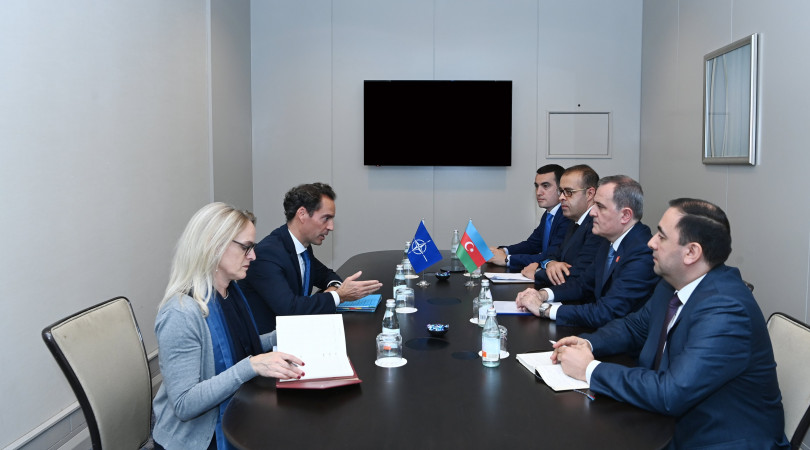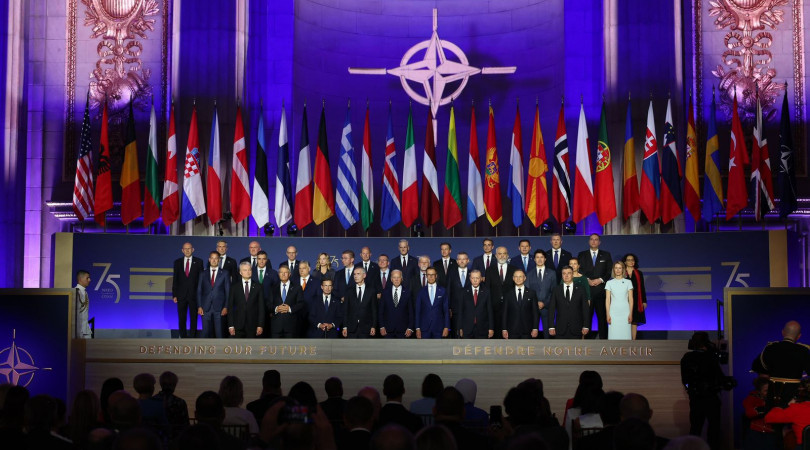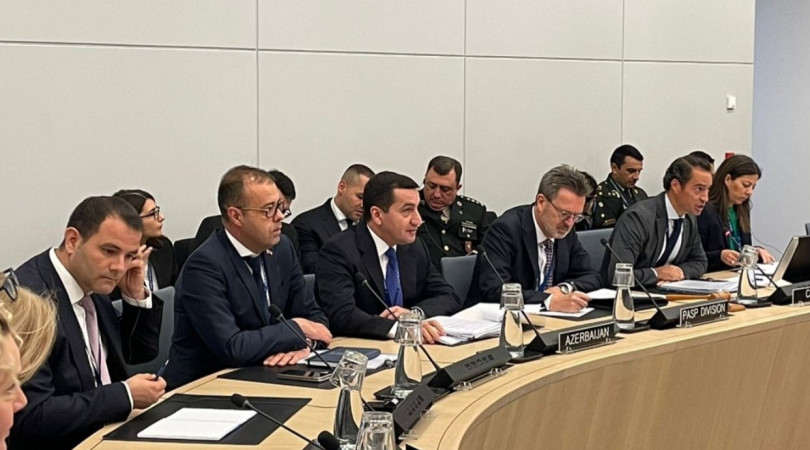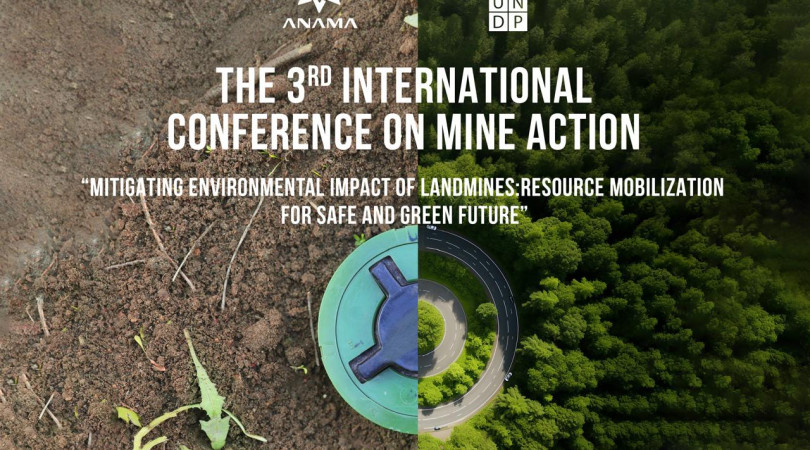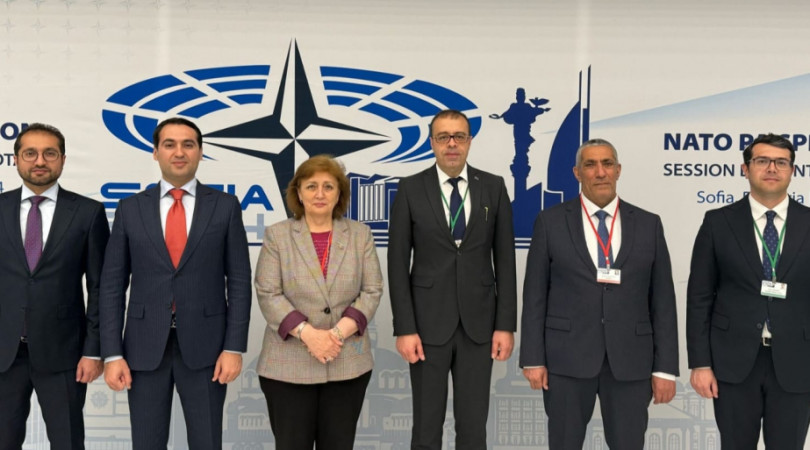Emerging Security Challenges
Emerging security challenges are potential, upcoming, non-traditional threats to our security that are real, and traditional policy patterns are unsuited to addressing them. International terrorism, cyber attacks, attacks on energy supply, as well as manmade and natural disasters are real challenges that extend beyond national borders. These unavoidable emerging challenges necessitate changing our policy patterns in order to provide security from such threats effectively.
When discussing emerging security challenges, the protection of critical energy infrastructure occupies an important place. The 2010 Strategic Concept commits NATO not only “to enhance the capacity to detect and defend against international terrorism” but also to “develop the capacity to contribute to energy security, including protection of critical infrastructure and transit areas and lines”. These commitments entail analysis of the threat, strategic assessments, consultation, planning and cooperation with partners. Cooperative efforts by the NATO Allied/Partner community in the area of overlap between counter-terrorism and protection of energy infrastructure constitute an important response to these requirements.
Mindful of this, NATO considers Azerbaijan an important ally in cooperation on energy security, and Azerbaijan actively participates in EAPC activities on energy infrastructure protection and countering terrorist threats in this field. Since March 2008 Azerbaijan has chaired the informal EAPC PAP-T Working Group on the Protection of Energy infrastructure, in the light of its vast experience in energy security. The aim of this Group is to develop a common understanding of the security threats and risks to energy infrastructure. A shared understanding of these challenges is essential to enhance ideas and best practices on counter-terrorism and other threats to energy infrastructure. Azerbaijan and NATO are continuing a political dialogue and exchanging experience on the protection of critical energy infrastructure as well.
Azerbaijan attaches importance to cooperation with NATO in the field of anti-terrorism, which the international community must tackle together. NATO has been actively engaged in the fight against terrorism and focuses on improved threat awareness and preparedness, developing adequate capabilities and enhancing engagement with partner countries and other international actors. Azerbaijan is building its interaction with the NATO and EAPC countries in a wide range of areas relevant to the fight against terrorism, including the military response to terrorism, enhancement of national counter-terrorism training capabilities, intelligence and information sharing, border security and civil protection anti-terrorist measures.
Moreover, counter-terrorism training constitutes a priority for Azerbaijan. For this purpose, the State Security Service established the International Anti-Terror Training Centre, which, inter alia, serves as a yet another tool for bilateral and multilateral cooperation. Establishment of this Centre will help Azerbaijan learn from foreign experience in combating international terrorism and create new opportunities to broaden international cooperation. The Centre will focus on education, training and academic research. Representatives of the corresponding bodies in both Azerbaijan and other states will participate in workshops, courses and other training and educational activities on combating terrorism. The International Anti-Terror Training Centre is closely cooperating with NATO to develop its curriculum since the relevant NATO-affiliated educational and training centres have vast experience leading anti-terror courses with the support of a valuable network of experts.
Furthermore, Azerbaijan is interested in cooperating with NATO on cyber defence. The communication and information infrastructures of Azerbaijan require a reliable, secure and protected network in the face of unforeseen cyber threats. In this context, Azerbaijan is interested in the exchange of experience and training with NATO countries on cyber defence. As for NATO, engagement with partners on cyber defence is tailored and is conducted on a case-by-case basis upon a decision by the Allies.
Emerging security challenges are potential, upcoming, non-traditional threats to our security that are real, and traditional policy patterns are unsuited to addressing them. International terrorism, cyber attacks, attacks on energy supply, as well as manmade and natural disasters are real challenges that extend beyond national borders. These unavoidable emerging challenges necessitate changing our policy patterns in order to provide security from such threats effectively.
When discussing emerging security challenges, the protection of critical energy infrastructure occupies an important place. The 2010 Strategic Concept commits NATO not only “to enhance the capacity to detect and defend against international terrorism” but also to “develop the capacity to contribute to energy security, including protection of critical infrastructure and transit areas and lines”. These commitments entail analysis of the threat, strategic assessments, consultation, planning and cooperation with partners. Cooperative efforts by the NATO Allied/Partner community in the area of overlap between counter-terrorism and protection of energy infrastructure constitute an important response to these requirements.
Mindful of this, NATO considers Azerbaijan an important ally in cooperation on energy security, and Azerbaijan actively participates in EAPC activities on energy infrastructure protection and countering terrorist threats in this field. Since March 2008 Azerbaijan has chaired the informal EAPC PAP-T Working Group on the Protection of Energy infrastructure, in the light of its vast experience in energy security. The aim of this Group is to develop a common understanding of the security threats and risks to energy infrastructure. A shared understanding of these challenges is essential to enhance ideas and best practices on counter-terrorism and other threats to energy infrastructure. Azerbaijan and NATO are continuing a political dialogue and exchanging experience on the protection of critical energy infrastructure as well.
Azerbaijan attaches importance to cooperation with NATO in the field of anti-terrorism, which the international community must tackle together. NATO has been actively engaged in the fight against terrorism and focuses on improved threat awareness and preparedness, developing adequate capabilities and enhancing engagement with partner countries and other international actors. Azerbaijan is building its interaction with the NATO and EAPC countries in a wide range of areas relevant to the fight against terrorism, including the military response to terrorism, enhancement of national counter-terrorism training capabilities, intelligence and information sharing, border security and civil protection anti-terrorist measures.
Moreover, counter-terrorism training constitutes a priority for Azerbaijan. For this purpose, the State Security Service established the International Anti-Terror Training Centre, which, inter alia, serves as a yet another tool for bilateral and multilateral cooperation. Establishment of this Centre will help Azerbaijan learn from foreign experience in combating international terrorism and create new opportunities to broaden international cooperation. The Centre will focus on education, training and academic research. Representatives of the corresponding bodies in both Azerbaijan and other states will participate in workshops, courses and other training and educational activities on combating terrorism. The International Anti-Terror Training Centre is closely cooperating with NATO to develop its curriculum since the relevant NATO-affiliated educational and training centres have vast experience leading anti-terror courses with the support of a valuable network of experts.
Furthermore, Azerbaijan is interested in cooperating with NATO on cyber defence. The communication and information infrastructures of Azerbaijan require a reliable, secure and protected network in the face of unforeseen cyber threats. In this context, Azerbaijan is interested in the exchange of experience and training with NATO countries on cyber defence. As for NATO, engagement with partners on cyber defence is tailored and is conducted on a case-by-case basis upon a decision by the Allies.

